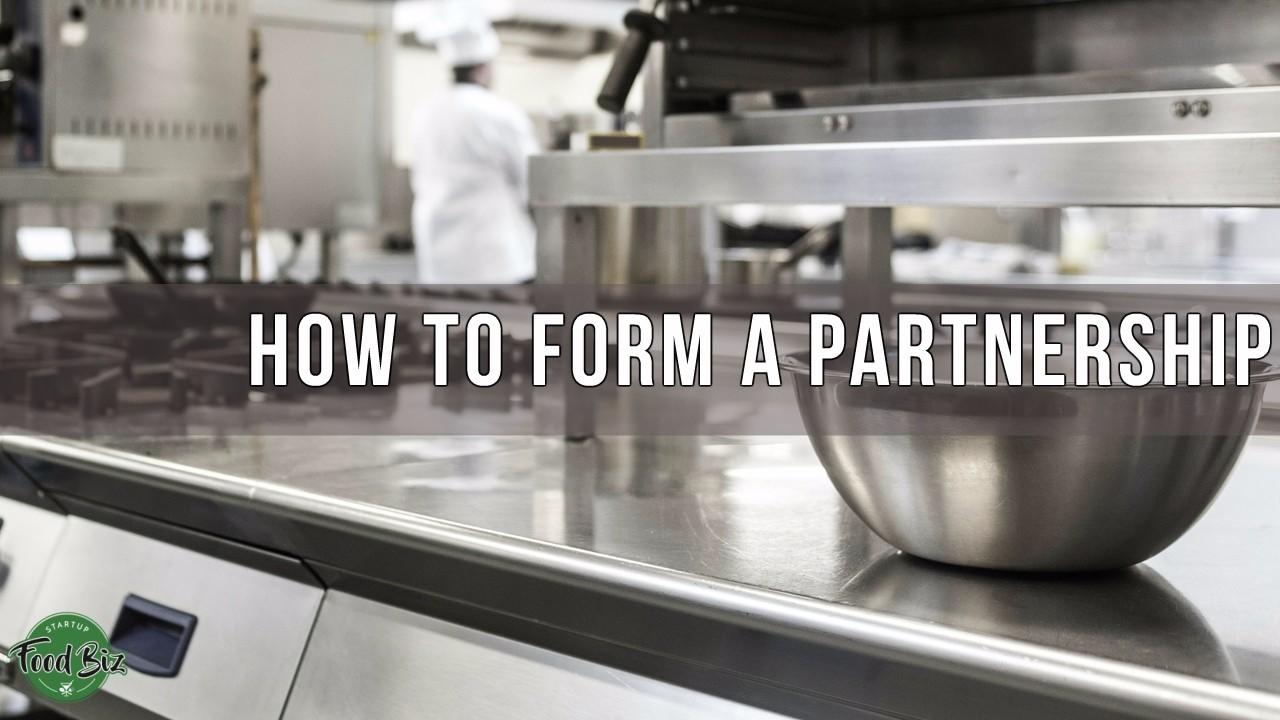How to Form a Partnership for Your Food Business

Form a Partnership
A partnership is a type of structure where two or more people share ownership in a business. Each partner contributes to all aspects of the business, including money, property, labor or skill, and in return each partner shares in the profits and losses of the business.
The partnership agreement is critical to the success of the partnership because it addresses a wide variety of issues up front, including how future business decisions will be made, how the partners will divide profits, resolve disputes, change ownership (bring in new partners or buy out current partners) and how to dissolve the partnership. For a Limited Partnership the governing agreement is the limited partnership agreement and for a Joint Venture its referred to as the joint venture agreement.
Types of Partnerships
General Partnerships (GP)
This type of structure assumes that profits, liability, and management duties are divided equally among partners. If you opt for an unequal distribution, the percentages assigned to each partner must be documented in the partnership agreement.
Limited Partnerships (LP)
This type of structure is more complicated than GPs. LPs allow partners to have limited liability as well as limited input with management decisions. These limits depend on the extent of each partner’s investment percentage. The general partner of an LP will be responsible for the management decisions and will be liable for actions of the partnership.
Joint Ventures (JV)
This type of structure acts as a general partnership, but for only a limited period of time or for a single project. Partners in a joint venture can be recognized as an ongoing partnership if they continue the venture, but they must file as such.
How to Form a Partnership
To form a partnership, you must register your business with your Secretary of State’s office. You’ll also need to establish your business name. In general, the legal name for the partnership is the name given in the partnership agreement. If you choose to operate under a name different than the officially registered name, you will most likely have to file a fictitious name (i.e, file a DBA).
Advantages of a Partnership:
Easy and Inexpensive
Partnerships are generally an inexpensive and easily formed business structure. The majority of time and expense is spent developing the partnership agreement.
Shared Financial Commitment
Each partner is equally invested in the success of the business. Partnerships have the advantage of pooling resources to obtain capital. This could be beneficial in terms of securing credit or by simply doubling your seed money.
Complementary Skills
A successful partnership should utilize the benefits of the strengths, resources, and expertise of each partner.
Partnership Incentives for Employees
Partnerships have an employment advantage over other entities if they offer employees the opportunity to become a partner. Partnership incentives often attract highly motivated and qualified employees.
Disadvantages of a Partnership:
Joint and Individual Liability
Partnerships retain full, shared liability among the owners. Partners are not only liable for their own actions, but also for the business debts and actions of the other partners. In addition, the personal assets of all partners can be used to satisfy the partnership’s debt. For LPs, only the general partner is liable for the business debts and actions of the other partners.
Disagreements Among Partners
With multiple partners, there are bound to be disagreements. Partners should consult each other on all decisions, make compromises and resolve disputes as amicably as possible.
Shared Profits
Each partner shares in the success and profits of the business with the other partners. An unequal contribution of time, effort or resources can cause friction among partners.
To learn more about starting a food business, see our course offerings.
Stay connected with news and updates!
Join our mailing list to receive the latest news and updates from our team.
Don't worry, your information will not be shared.

